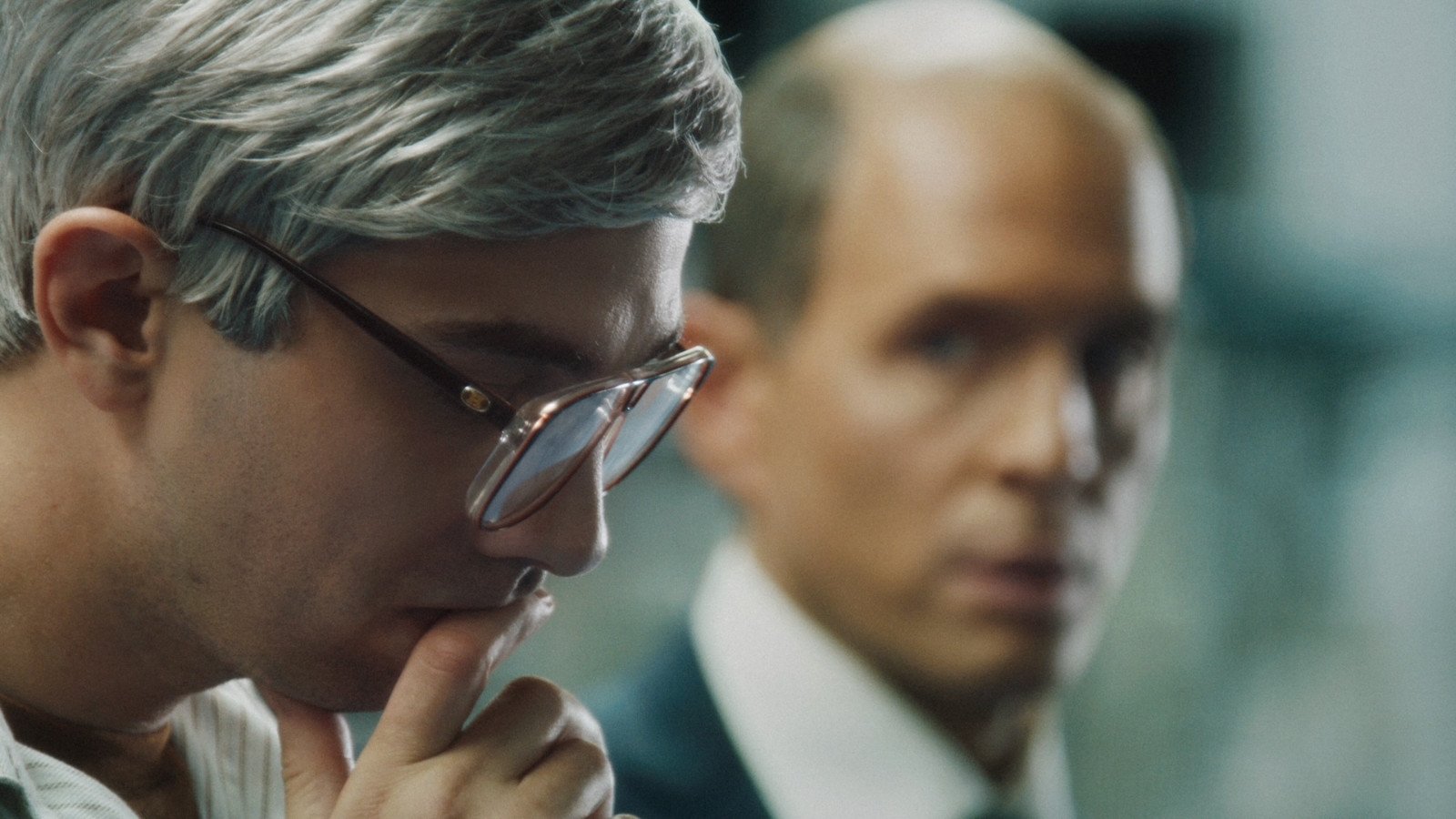BlackBerry: Canada's We-Invented-the-Smartphone Tale Has Corporate America Flavour
By Chris Knight
Rating: A
On a recent trip to both sides of the international border at Niagara Falls, I was struck by the ironic disparity between the American and Canadian communities clustered around the eighth wonder of the world.
It’s precisely the opposite of what cultural stereotypes would suggest. On the New York side is state-run parkland, greenery, and birdsong. Over in Ontario you’ll find Clifton Hill, a gaudy strip of wax museums, fun houses, fast food joints and other businesses designed to separate you from your money.
That’s what BlackBerry is like. Everything about this corporate rise-and-fall story screams America —larger-than-life personas, conspicuous consumption, private jets and heist-movie pacing, not to mention literal screaming from several of the powerful, high-strung characters.
Ah, but scratch the surface and it bleeds maple-leaf red — Shopper’s Drug Mart, Bank of Montreal, Waterloo, hockey. There’s a small role for Canadian Saul Rubinek and a much larger one for Jay Baruchel. And that’s because BlackBerry is a made-in-Canada tale, the story of Research in Motion, the Waterloo company now known as BlackBerry.
Founded in 1984, RIM introduced the world’s first two-way pager in 1996 which was more of a game-changer than it sounds like to modern ears. It went on to dominate the early smartphone market, until 2007 when Apple’s new iPhone dealt the company a virtual death knell.
As late as 2010, RIM controlled almost half the North American smartphone market. But six years later, iPhone users had quadrupled, while RIM’s share of the market fell to less than one per cent.
The film BlackBerry is co-written and directed by Matt Johnson, the Toronto director behind such rough-and-ready comedies as The Dirties, Operation Avalanche and the series Nirvana the Band the Show.
The obligatory opening text informs viewers that this “fictionalization is inspired by real people and real events,” giving Johnson enough wiggle room to indulge both his guerrilla filmmaking style and his penchant for pop-culture references from the overt and obscure, an including such ’80s icons as Carey Elwes and Michael Ironside in minor roles.
Oh, and if you’re curious about the origin of the line “I’m from Waterloo, where the vampires hang out!” just Google it and watch the viral video from 10 years ago, shot at Toronto’s Yonge-Dundas Square.
Johnson casts himself as Doug, a.k.a. Douglas Fregin, one of the founders of RIM, playing the kind of garrulous, gregarious goofball that is his speciality. But the real revelation in the cast is Baruchel, almost unrecognizable behind glasses and a shock of white hair, playing the other founder, Mike Lazaridis.
Read our interview with Jay Baruchel and Glenn Howerton
Baruchel’s performance is brilliant. At first, he seems to be doing a variety of his gawky gangly geek, awkward and subdued. But over the 10-plus years of the story, we watch as he grows in confidence, poise, and tailoring, never turning into someone else, but effortlessly indicating the evolution of an ego.
It’s award-winningly good, even while existing in the shadow of Glenn Howerton’s turn as Jim Balsillie, the outsider who joined RIM as its co-CEO, his bluster and business acumen providing the perfect counterweight to Lazaridis’s technical knowhow. The movie suggests that RIM would never have succeeded without their unique pairing.
The screenplay, co-written by Johnson’s regular writing partner Matthew Miller, is based on the 2015 book Losing the Signal: The Untold Story Behind the Extraordinary Rise and Spectacular Fall of BlackBerry, by Globe and Mail journalists Jacquie McNish and Sean Silcoff.
It rises at times to almost David Mamet levels of script crackle, as when a character bemoans: “We’re going to go from number one phone in the world to that phone that people had before they brought an iPhone.” Or my favourite, when an AT&T bigwig crystallizes the problem of selling airtime to phone users: “You know what the problem of selling minutes is? There’s only one minute in a minute.”
It’s clever and backed up by enough tech-speak to give viewers a sense of the nuts and bolts of things without wandering into the weeds. Exhibit A: The scene in which Baruchel’s character effortlessly explains what we’ve come to know as push notifications, the technique that allows wireless devices to co-exist on the same network not in the tens or hundreds, but the millions.
That tech-but-not-too-much aesthetic extends even to the score by Jay McCarrol (another of Johnson’s go-to guys), which incorporates electronic notes and stings without it becoming too obvious. Again, positioning BlackBerry as the quintessential American-Canadian movie. Every time its joyous excess veers too close to bombast, it pulls back as if to say: “Sorry.” And then proceeds to wow us all over again.
BlackBerry. Directed by Matt Johnson. Starring Jay Baruchel and Glenn Howerton. In theatres May 12.



